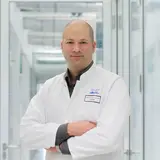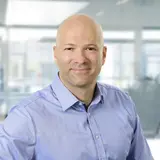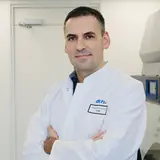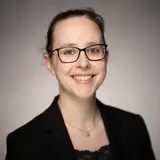Biological Safety
Welcome to the page of the Biological Safety Unit at DKFZ. Here you will find information about our tasks and duties as wells as our training courses.


“We ensure that our laboratory staff can go home in the evening in the same healthy condition as they arrived that morning.”
Dr. Timo Kehl, Head of Biosafety at DKFZ
Our duties
At the DKFZ laboratories, our scientists work with a wide variety of organisms, including genetically modified organisms, bacteria, viruses, and medical specimens. The task of Biological Safety is to assess the risks posed by these biological agents and to develop measures to protect researchers, employees, the public, and the environment from potential hazards of research.
The Biological Safety Unit serves as the central point of contact for all questions and matters related to biosafety and research security. Biosafety encompasses measures to prevent accidental exposure of humans and the environment to infectious or toxic biological agents. Biosecurity, on the other hand, aims to prevent deliberate risks such as theft or misuse of biological materials. Research security focuses on protecting scientific results from misuse, especially in connection with publications or exchanges with third parties. Additionally, the unit supports scientists in complying with the Nagoya Protocol, which ensures fair access to genetic resources from their countries of origin and promotes equitable benefit-sharing.
Scope of Biosafety
- Implementation of regulations under the Genetic Engineering Act (GenTG), Infection Protection Act (IfSG), Epizootic Pathogen Ordinance (TierSeuchErV), and Biological Substances Ordinance (BioStoffV)
- Advisory, supervisory, and administrative functions for the safe handling of natural biological agents and genetically modified organisms
- Risk assessments and classifications for e.g. genetic engineering works
- Management of DKFZ’s centralized BSL2/BSL3 laboratories, as well as supervision, control, and monitoring of compliance with statutory obligations, regulatory requirements, and provisions in DKFZ's decentralized genetic engineering facilities
- Consultation on structural changes, new construction projects, and safety-relevant equipment.
- Acting as the operator representative in dealings with authorities
- Support for the Biological Safety Committee
- Development and enforcement of biosecurity measures to prevent the loss, theft, or misuse of highly infectious or highly toxic biological agents and materials
- Implementation of the Nagoya Protocol
Scope of Research Security
- Implementation of export control regulations, particularly the Foreign Trade Act (AWG), the Foreign Trade Ordinance (AWV), and the EU Dual-Use Regulation
- Conducting, overseeing, and supporting checks of goods lists, sanction lists, embargoes, and end-use verification
- Assisting scientists in reflecting on the security implications of their research, particularly regarding misuse potential in their research field ("Know your research") and in collaborations with third parties ("Know your partner")
- Organization and execution of risk analyses
- Support for the Commission for Ethics in Security-Relevant Research (KEF)
The coordinating contact person for notification, registration and approval procedures as well as for correspondence with the responsible authorities, associations and organizations is Dr. Timo Kehl, representative for the management board.
Please address any inquiries to the Biosafety Secretariat, Tel. +49 (0)6221 42 3667, biosafety(at)dkfz.de.
Training courses

Science is subject to constant change, while laws and regulations are sometimes adapted discreetly and with sometimes long delays. Regular attendance at a training course ensures that your knowledge is up to date and that you can properly classify the hazards to your employees posed by working with biological agents.
For the risk assessment of the work with genetically modified organisms (GMO) and other biological agents, a corresponding technical or specialized knowledge is necessary. The precise composition of this depends on the planned work and the associated legalities.
According to the Biological Agents Ordinance (BioStoffV, §2 para. 11), it may be necessary to complete various advanced training courses in order to acquire the required expertise. On the other hand, the Genetic Engineering Safety Ordinance (GenTSV, §§28 para. 2 p. 1 no. 3, para. 5) mandates the attendance of an officially recognized advanced training course as part of the required expertise. With the update of the GenTSV in 2021, it is also necessary to refresh the expertise every 5 years through a new attendance at a recognized training event (GenTSV §28 para. 3).
As the Department of Biological Safety at the German Cancer Research Center (Deutsches Krebsforschungszentrum, DKFZ) in Heidelberg, we deal on a daily basis with the issues surrounding the subject of biological agents and the resulting risks for employees and the environment. Based on our expertise, we have started to develop training events and now offer them also to external parties.
Currently offered training courses:
- Refresher Course for Appointed Project Manager Expertise according to GenTSV §28 para. 3
Further information can be found here
- BSL3-Workshop series “Arbeitssicherheit und Fachkunde in S3-Laboren”
Advanced training for skilled personnel according to TRBA 200
Further information can be found here
Our team
-

Dr. Timo Kehl
Head of Biosafety at DKFZ
-

Dr. Marcus Conlé
Advisor for research security and export control
-

Dr. Jennifer Engel
Project coordinator, Administration of the Biological Information and Documentation System (BIDS)
-

Marita Remor
Team assistance and administration
-

Dr. Peter Schlegel
Project coordinator Laboratory construction and conversion, Technical laboratory management, BIDS
-

Dr. Anna-Clara Schnell
Project coordinator Biosafety training courses, BIDS
-

Dr. Melanie Tramontano
GMO and biological agents works, authority registrations and deregistrations according to GenTG and IfSG, BIDS

Get in touch with us
